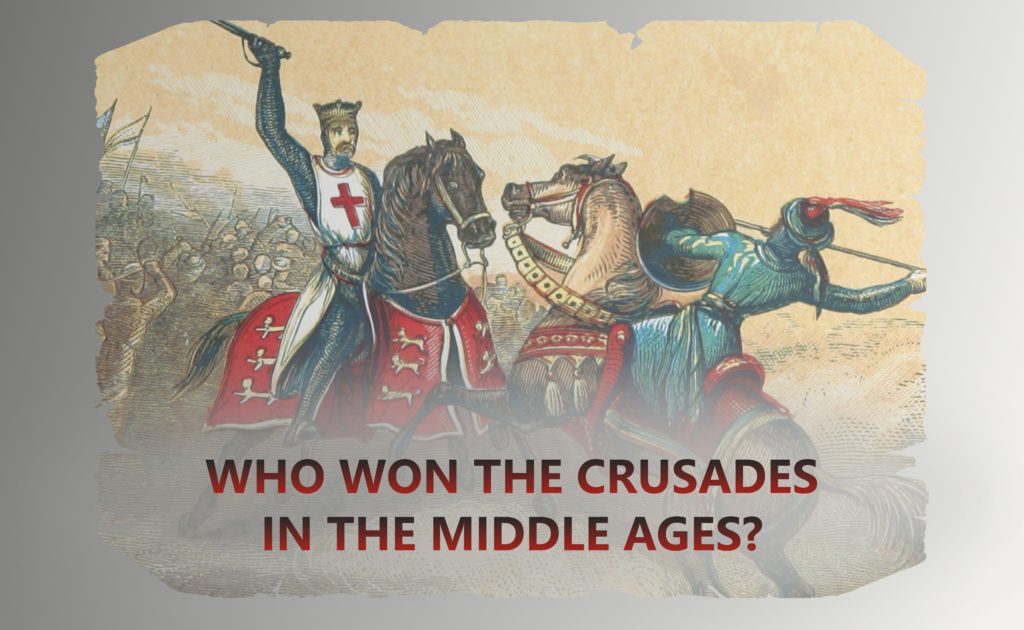The Crusades were a series of religious wars fought between Christians and Muslims from 1095 AD to 1291 AD. They were a time of great bloodshed and devastation, engulfing the entire Middle East in warfare. Who actually won the Crusades? This question has long been debated, with no definitive answer. What is clear, however, is that the Crusades left a lasting legacy in the Middle East and elsewhere. In this article, we take a look at some of the key factors that led to the Crusades and explore who won the Crusades overall.
Who started the Crusades?
The Crusades were a series of wars fought by Christians to take back the Holy Land from Muslims. They started in 1095 and continued until 1291 when they were finally defeated.
There is some disagreement over who started the Crusades. Some historians believe Pope Urban II initiated the first Crusade in 1095 with a speech called De Clerico Militis (On Military Service). Others argue that Byzantine emperor Alexius I did so two years earlier, in 1090. Regardless of who was really behind it, the crusaders quickly took advantage of this opportunity and invaded Muslim-controlled territory.
Why did the Crusaders fight? Both sides had valid reasons for wanting control of Jerusalem: For Byzantium, it was an important spiritual center; for Islam, it was considered one step closer to reaching paradise. But religious differences weren’t the only reason these battles raged on for so long: greed also played a role. Both sides wanted control over valuable land and resources, leading to many brutal massacres. Eventually, economics won out and determined who would ultimately win – Christianity or Islam.
How many Crusades were there?
The Crusades were a series of eight major military campaigns by the Roman Catholic Church to recapture the Holy Land from Muslim control. The first Crusade happened in 1096, and the last occurred in 1291.
While there were various crusade expeditions throughout this period, they all had several common features. Each expedition was large (usually between 5,000 and 20,000 participants), often aimed at completely conquering Muslim-held territory, and almost always failed to achieve its objectives. Only two of eight crusades resulted in real territorial change for either side.
What were some other key factors that contributed to these failures?
- Most Crusaders needed to be equipped for warfare; their armor was usually made from mismatched pieces that didn’t fit well together, their weapons lacked accuracy or durability, and they needed to be trained to fight effectively as cohesive units.
- The Muslims proved much more adaptive than expected; instead of capitulating once confronted with overwhelming numbers and firepower on multiple fronts as earlier Christian armies had done during conquests elsewhere in Europe or Asia Minor, they forced Christians into guerrilla war using small unit tactics. This changed medieval warfare’s nature dramatically: armies could no longer be easily dispatched by attacking head-on with high morale.
How did the Crusades end?
The Crusades were a series of religious wars fought by Christian forces to reclaim the Holy Land from Muslim rule. They began in 1095 and ended with the fall of Acre in 1291. This was one of the final significant setbacks for the Crusaders, signaling the end of their efforts to recapture Jerusalem.
Many historians believe this defeat marked the end of the Crusader States and the Crusade itself. After Acre fell, many remaining Crusader cities – such as Constantinople (Istanbul) and Antioch – eventually surrendered to Muslim sultanates or empires. This effectively ended Christendom’s effort to expand its borders into Islamic territory, marking one of history’s most significant turning points.
Who were the winners of the whole Crusades?
As you might already know, the Crusades were a series of military campaigns waged by Christians against Muslim forces from 1095 to 1291. The Muslims ultimately emerged victorious due to their superior manpower and organizational skills.
While the Christian armies had some successes early on, they eventually suffered devastating defeats at the hands of the Muslim warlord Saladin and his forces. It was only thanks to a negotiated settlement that allowed both sides to retreat in good standing that Christianity retained any foothold in Europe after these costly wars.

